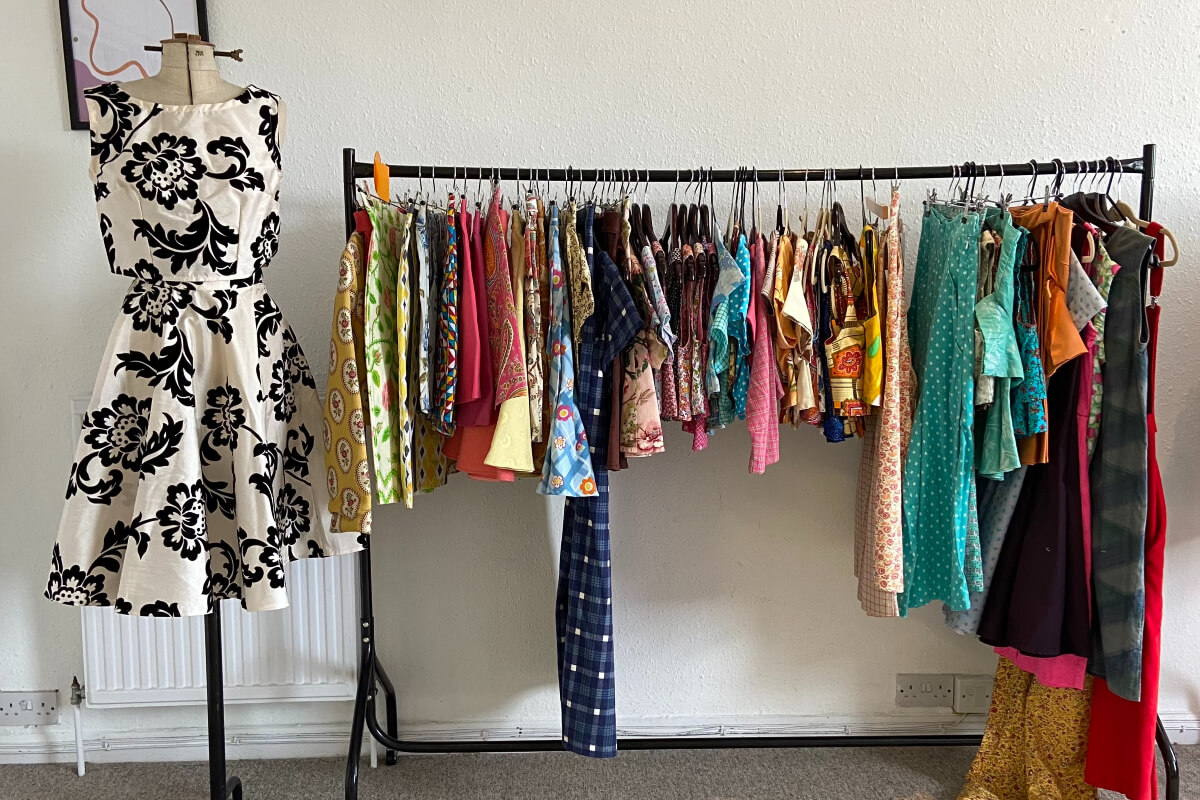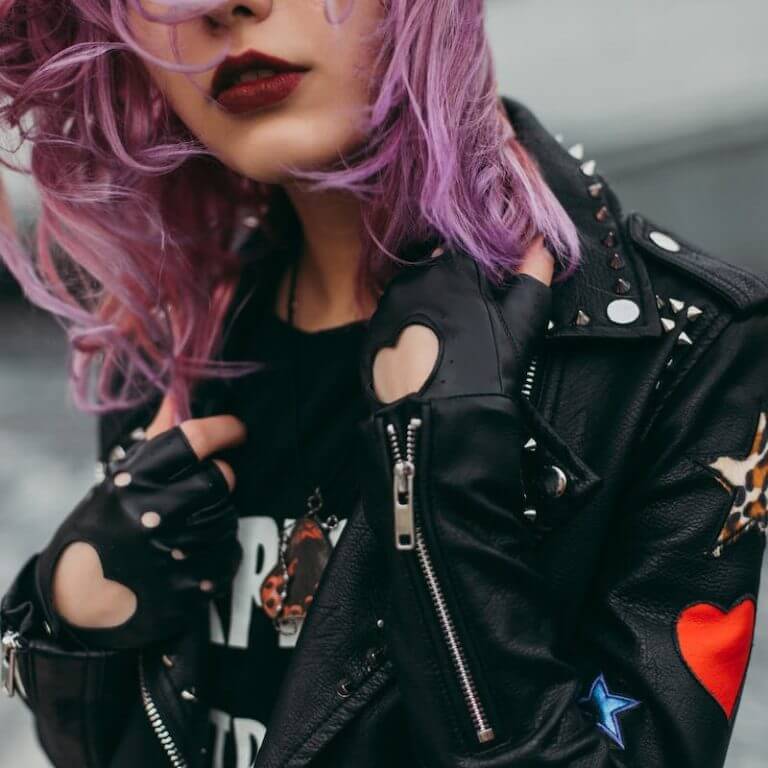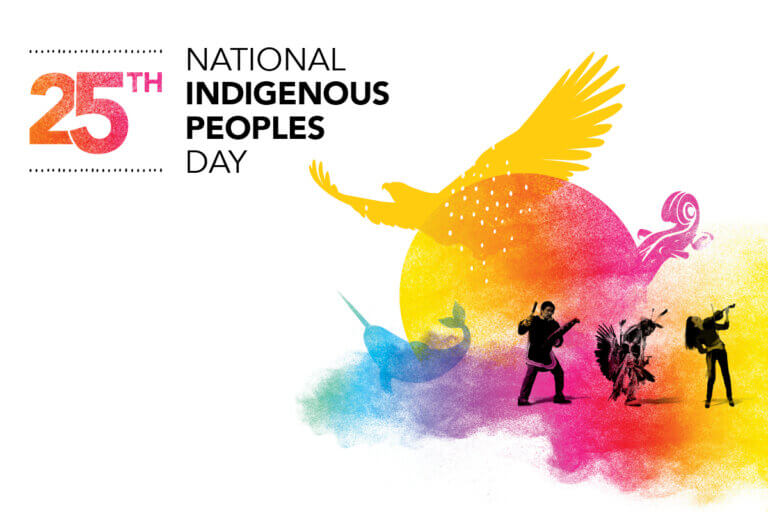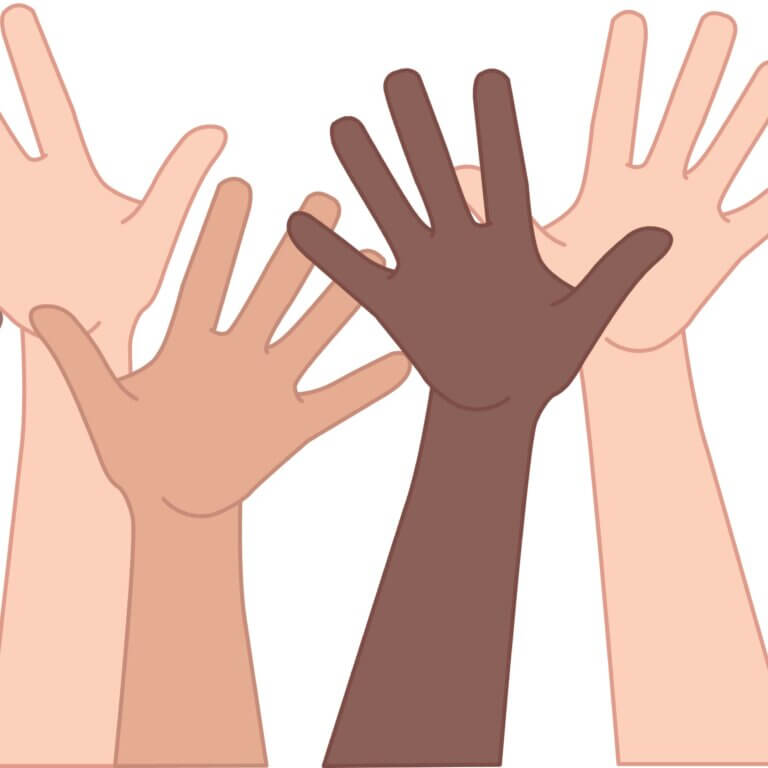One of the hot button words of the moment is “ethical”. As in: is this business ethical? Are we ethically sourcing our resources? How are we ethically engaging with the companies and organizations around us? How do we judge if something is ethical? Emperor’s Old Clothes is one ethical clothing company leading the way in exploring these types of questions when it comes to running their business.
What Does It Really Mean to Be an Ethical Business?
The word “ethical” encapsulates so much more than its seven letters indicate: it’s used to talk about race, about gender and sexuality, about work situations and the global supply chain, about living wages, about greenwashing, the list continues.
The Emperor’s Old Clothes is a made-to-fit ethical and sustainable clothing company based in the UK that looks to tackle a lot of these issues head-on with openness and honesty. Many of these conversations are happening publicly through their Instagram account.
Started in 2012 as a side project by Cecily Blondel, the company has since grown and shifted in the near decade since its inception, from ready-to-wear to made-to-fit clothing in sizes ranging from UK 4-6 to 26-28 (and expanding).
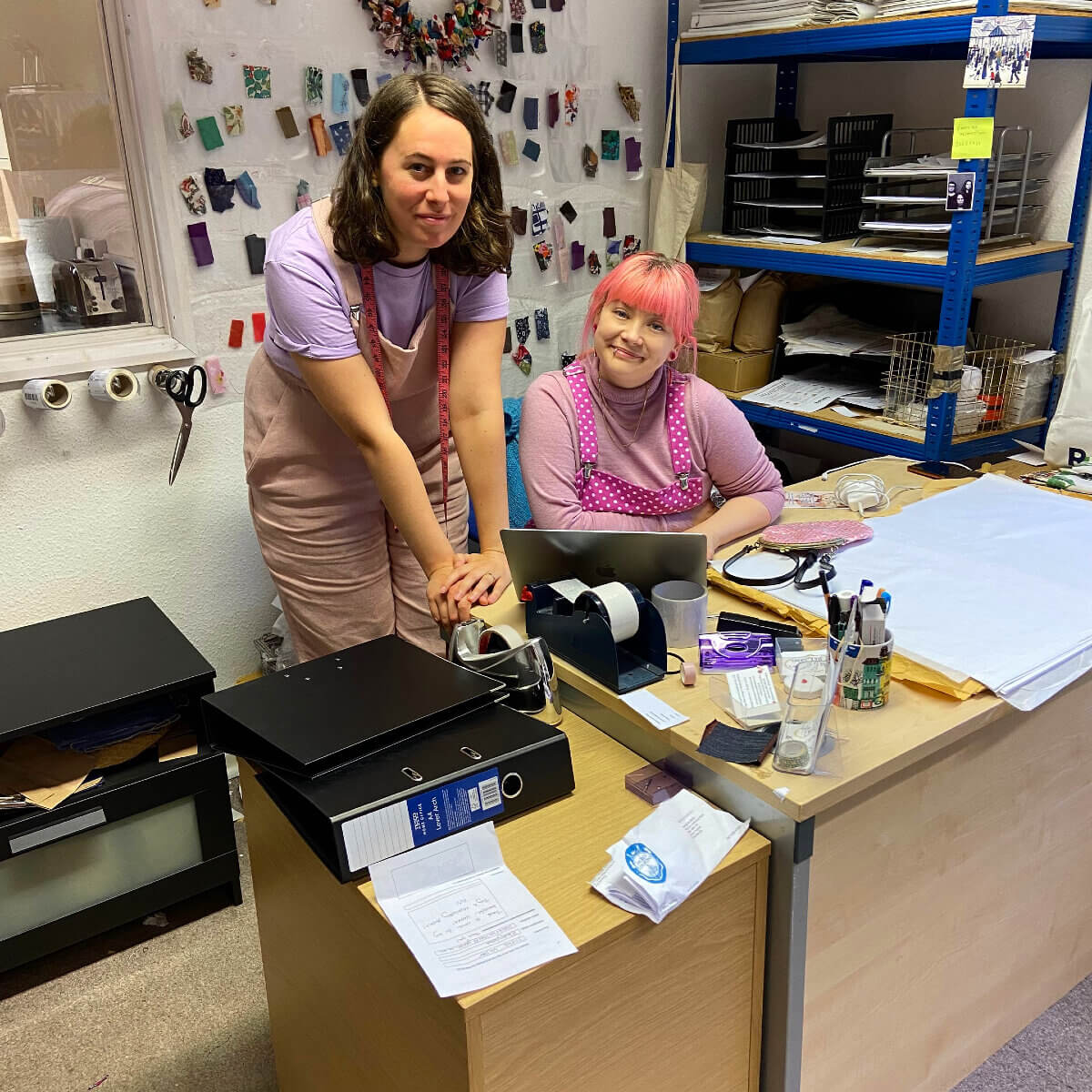
Ethical Clothing Brand Emperor’s Old Clothes Pays Living Wages
Currently co-owned by Blondel and Louisa Wild, the business has used their social media presence to discuss paying their employees living wages, anti-racism work their staff is undertaking, and the realities of being a small business that has received no financial support from the UK government during the last 19 months of the pandemic.
When asked why they choose to discuss and engage with these topics on a public platform, both Blondel and Wild replied with the simple, “It’s the right thing to do.”
Wild expanded on that, saying that these are crucial discussions: “When we hired people, it was a non-negotiable with those people that they would have to engage in anti-racism work. I think you have to build that into your workplace. If we expect it to happen, you have to make time for it.”
Blondel agreed, adding that businesses and employers have to be proactive about it: “Again it comes down to: What do you want to do? What do you want to achieve? What do you want to work towards? What do you want to be a part of?”
Company Wants Staff to Examine Their Privilege
Both owners talked at length about the privileges they (and many of their staff) carry simply by being white. They believe it’s important to have conversations about privilege, even if those conversations may be uncomfortable or upsetting.
“You have to be honest with people about the fact that if you look at anti-racism as something that you have to opt-in to, and centre in your life, and something that you are going to be taking part of in a helpful way — part of that is speaking to other white people about it,” Blondel says. “We know what the majority of our customer base is, and they clearly feel that they relate to us in some way, and that way is probably the connections that we hold, and you have to be very transparent and open about what you’re doing in order to get other people to do the same.”
Wild mused that the duo are “a palatable in for the people who need to be taught how to care. We are relatable for them.” Even with that relatability in play, Wild noted that there are still conversations, and even arguments, that take place in regards to the company’s garment prices and why they’re priced the way they are.
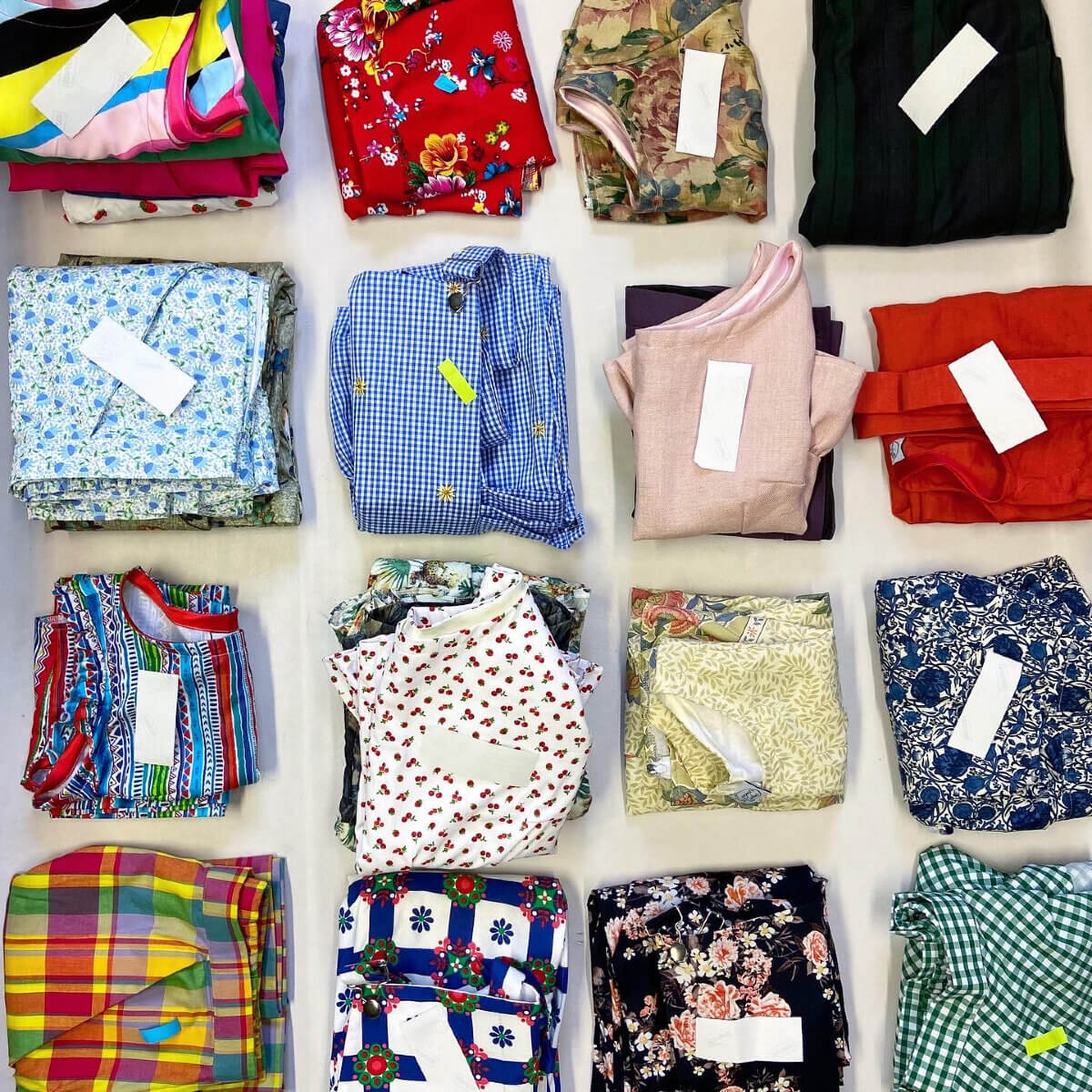
Consumers Can Vote With Their Wallets and Support Ethical Brands
Some consumers may not be willing to pay more for sustainable and ethical clothing from a brand like Emperor’s Old Clothes.
Both owners of the company believe that everyone holds different responsibilities in the transactions they conduct: consumers in the things they’re deciding to consume and where they’re deciding to consume from, and sellers in the way they acquire and sell what they’re offering.
Related Articles
“There are a few different conversations we’re always having at once, but what’s each person’s role and responsibility within the transaction — the capitalistic transaction that we’re obviously having — every time we buy clothes?” Blondel asks. “I think consumers definitely have a role to play, about being intentional and shopping within their means, and making better decisions, and being more ethical in that way. I think brands have a very different role, but the size of the brand also plays a part.”
Miranda Bennett, the founder of a sustainable clothing brand that uses natural dyes, also invites consumers to question what they are buying. She asks consumers to consider cost per wear when buying clothes, rather than the ticket price. More and more designers are pursuing sustainable fashion, and by purchasing less cheap clothing, in favor of high-quality pieces that last longer, consumers can help mitigate the harmful effects of the fast fashion industry.
How Emperor’s Old Clothes is Challenging the Status Quo
The size of a business is also something to take into account when examining how they live their values. The Emperor’s Old Clothes is a relatively small ethical clothing company. And yet, they’ve managed to implement living wages, anti-racism educational practices, and discuss all of these things openly and freely on their Instagram account. So why isn’t the same being done at larger organizations?
“If you ever see a rich person or a rich company, how did you get that wealth?” Blondel asks. “You got it from exploitation. Whether or not you personally did that, in every generation, it comes down to decisions. I completely agree, all these companies could be doing that work, but in the very nature of how they’ve become big companies is by not doing that.”
She continued on by saying: “We want to work towards educating ourselves and being a brand that helps bring about more equity and justice in the world. And that’s not going to happen if we just sit there going, ‘That’s racist.’”
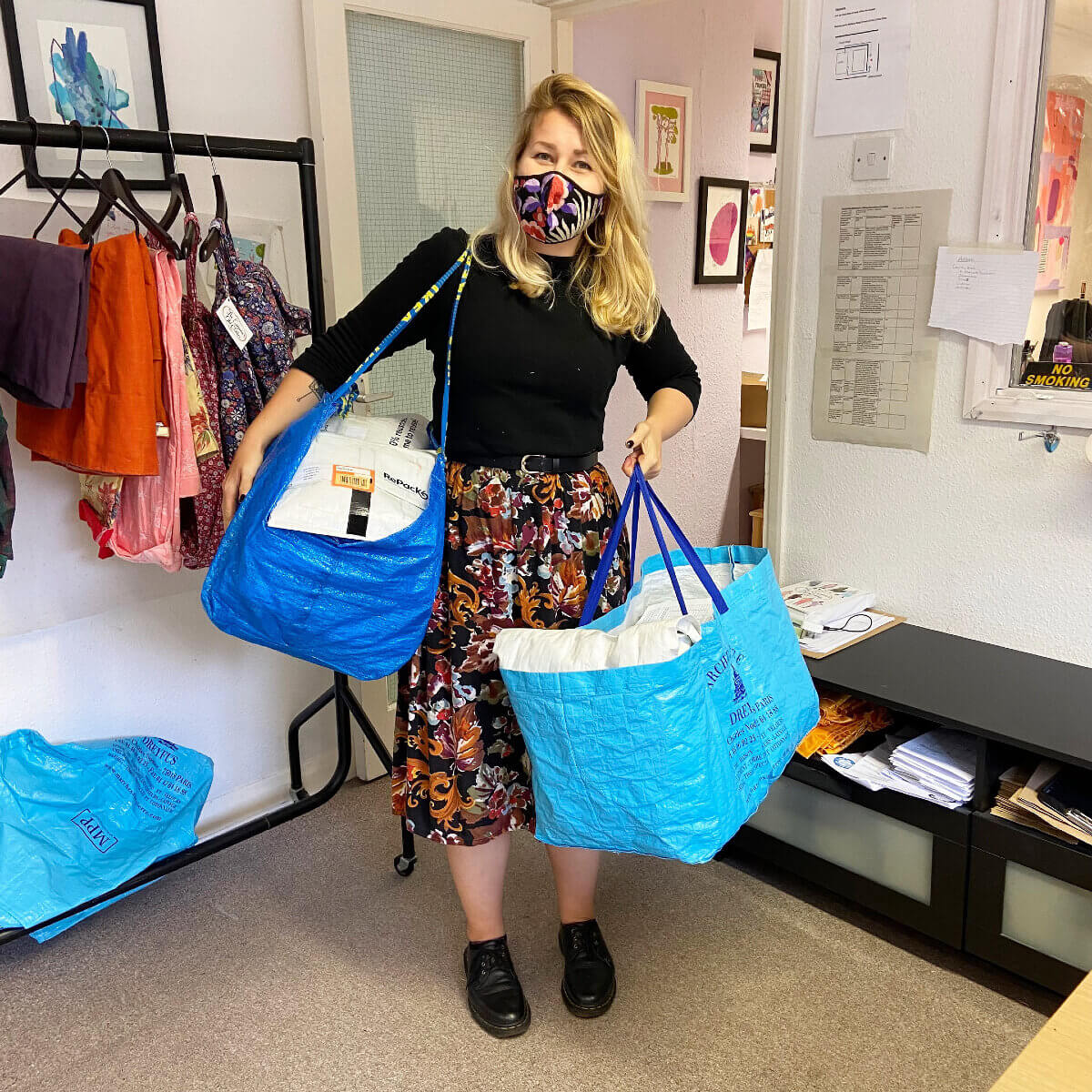
Emperor’s Old Clothes Won’t Compromise on Their Values
Blondel acknowledged that neither she nor Wild are interested in compromising on their values, which is a double-edged sword because it means having traditional investors is out of the question.
“I think there are a lot of people who would love to invest in a business like ours, because we would tick a lot of their equality boxes, but we don’t want to have shareholders because we don’t want to be told what to do,” Blondel says.
However, doing it their own way also means they’ve been able to surround themselves with a group of people who are able to sustain and build community with them.
“That’s why you’ve got to have a support network,” Wild says. “We’ve created this little world of people, and you need that, lots of that, to keep people going and to stay energized. When one of us feels like the pits, the other one picks us up. That’s what you need. Being reminded why you’re doing it because it does feel like it’s endless.”
Creating a Caring Community
The community they’ve created is a bright, creative, eclectic and caring one. The Emperor’s Old Clothes’ Instagram account is full of colorful images of their made-to-wear ethical clothing, both in progress and finished. There are up-close shots of florals, buckles, snaps, and ruffles, along with re-shared images of customers delighted with finding sustainable clothing that fits.
“It’s so exciting sewing up and seeing what people go for and then having garments that are different every single week and we get to look at,” Wild says. “We’re really lucky that we get to create garments.”
While Wild and Blondel and their team feel lucky, their clients should also feel lucky that there’s an example out there of what an ethical business can look like — a roadmap for other, larger companies, with more resources and more influence, to also be doing that work.
Lead image: A rack of Emperor’s Old Clothes ethical and sustainable clothing on display in their store in Brighton. Photo courtesy Emperor’s Old Clothes.
